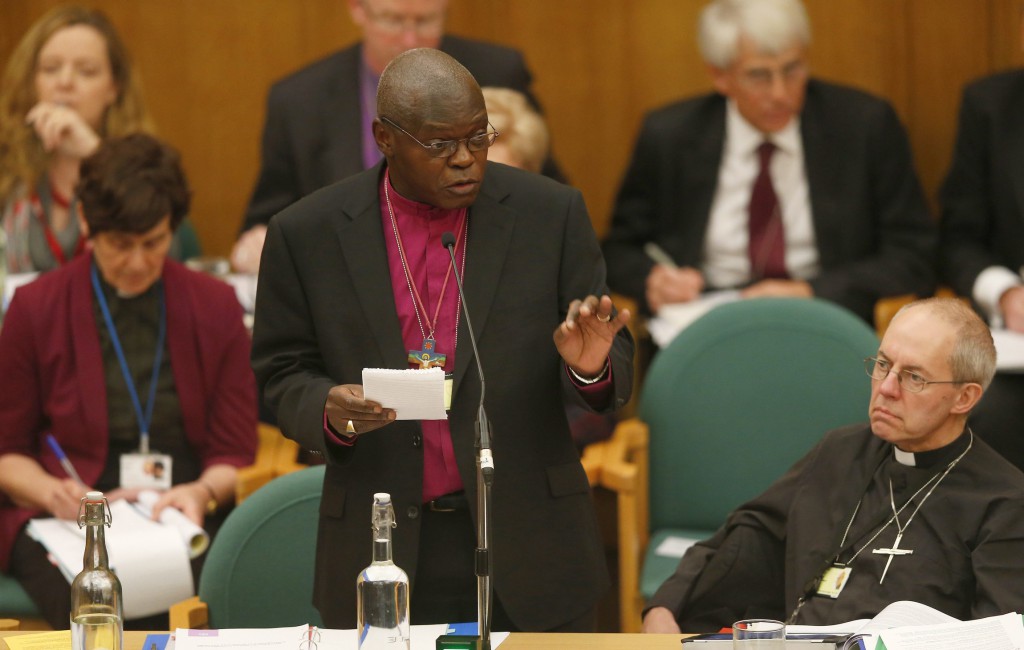
By Simon Caldwell
The ruling body of the Church of England has signaled its overwhelming support for the ordination of women bishops, a year after opponents stalled the process.
During a Nov. 20 debate in London, all three houses of the General Synod — bishops, clergy and laity — voted, 378-8, with 25 abstentions, in favor of change.
If the outcome of the vote is replicated in a second formal ballot in July, it will mean that women could be ordained bishops soon afterward.
The breakthrough came after a majority of traditionalist Anglicans, who had opposed the ordination of women, indicated they were now satisfied with new arrangements offered to protect parishes and clergy that do not accept women as priests or bishops on theological grounds.
Martin Dales, spokesman for the traditionalists, said the new package gave them room to express such convictions. In a Nov. 20 statement, he spoke of a “new atmosphere of trust and reconciliation, together with the clear recognition that our theological convictions will continue to be within the spectrum of Anglican teaching, and the commitment to provide appropriate bishops and priests for our parishes.”
“We urge all involved to take steps to build up further the atmosphere of trust, which is why many of us have voted for the new legislative process to continue,” he said.
Previous measures had included a proposed “code of practice” setting out how traditionalist parishes might opt out of the control of a woman bishop; traditionalists rejected this proposal, saying it did not allow them sufficient protection.
The new package would allow women to become bishops and archbishops, but it also contains a declaration promising the accommodation of traditionalists who object to being under their authority.
Decisions on how to achieve this will be made locally, and there are rights of appeal to an independent reviewer, or ombudsman, if traditionalists remain unhappy with the outcome.
The new terms also mean, however, that traditionalist clergy could face disciplinary action if they neither accept women bishops nor cooperate with an ombudsman.
The Catholic Bishops’ Conference of England and Wales decline to comment on the outcome of the vote.
The Rev. Rosie Harper, chaplain to the Anglican bishop of Buckingham, said during the debate that it was “weird” for the Church of England to oppose women bishops in the 21st century.
“People out there don’t care enough to be angry, but they do dismiss us as weird,” she said. “If we are serious about our mission, and I know this is a very basic point, we really do have to stop being weird.”
British Prime Minister David Cameron responded to the outcome of the vote by promising to elevate future women bishops “as soon as possible” into the House of Lords, Britain’s second political chamber, where some Anglican bishops sit as “lord spiritual.”
Speaking to the House of Commons Nov. 20, Cameron said: “I strongly support women bishops, and I hope the Church of England takes this key step to ensure its place as a modern church, in touch with our society.” – CNS